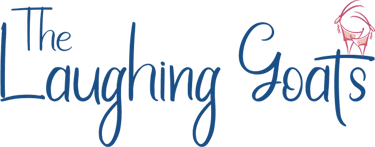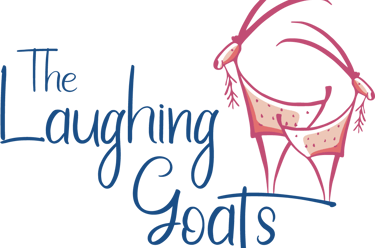

Health Vibes - Build Muscle & Bone, Stay Youthful Past 60
Build strong muscles & bones to keep your body youthful past age 60 and 70. Muscle & bone loss starts in your 30's with critical loss by age 60, especially women. Shrinking muscle & inflammation rapidly ages you. See amazing results from protein & strength training. Feel, move, and live younger.
Build Muscle & Bone, Stay Youthful Past 60
Did you know that building strong, healthy muscles & bones will keep you more youthful? Even if you're already over 60 years of age, it's not too late. We need to invest in our future freedom - having the mobility to move and do activities that we love beyond age 60, 70, and 80.
Did you know - if a muscle isn't used - it begins to shrink within a few short weeks. In addition, the older we get the more muscle we naturally lose. After age 30, you start losing 3-10% of muscle & strength per decade. From age 50 to 70, muscle loss can be 30%. Wait.... WHAT? That's shocking.
From age 30-35 we also start loosing bone density - a condition that leads to osteoporosis and brittle bones. This means bone fractures. They estimate 25% of men and 50% of women over age 55 will suffer a bone fracture. Women: that's 1 in 2 will get a fracture. Well, I'm not going to be the 1, so is it you? Peri-menopause & post-menopause women will experience significantly more bone density loss - 20% within 5 years. How blessed are we, I say sarcastically!
FYI: You can gain muscle & bone density even over age 60.
Why is Protein So Important?
Protein helps build strong muscles, bone strength/density & collagen.
Improves metabolism, immune system, and burns body fat.
Helps muscles repair tears, and recover after exercise.
Improves heart/cardiovascular health and lowers cholesterol.
Improves digestion for energy production, regulates hormones.
Carries nutrients to the body, improves brain function.
Helps skin health, and overall healthy aging especially with exercise.
Curbs hunger, controls cravings, and sugar levels, etc.


Balance Your Body as you Build Muscle
When lifting weights, or doing resistance training you'll notice that one side of your body is a little stronger and more flexible than the other side. Typically if you're right handed, the right side of your body is more dominant - stronger and possibly more flexible.
Balance your body. If you don't train & stretch your weaker side a little more to get your body in balance - you're at a higher risk of injury. For example a weaker leg may cause you to walk on one side of your foot instead of the entire foot which will cause injury. It could also cause your butt muscles on the opposite side to overcompensate which then becomes inflamed and painful.
By strengthening & stretching your weaker side a little extra, your body becomes balanced and stable, less prone to injury, and with less inflammation & pain during and after activity.
Electrolytes - protects muscles & builds bone strength. If you eat healthy, you'll get most of the magnesium, potassium, and minimal sodium you need. However, you will lose electrolytes when you sweat. Intense exercisers might consider taking an electrolyte supplement.
Calcium - needed for strong healthy bones, and most people don't get enough. Age & gender determine calcium needs - about 1,000 mg for adults 19-50. Over 50, especially women need about 1,200 mg. Vitamin D & K2 must be included to help with absorption. Don't exceed dosage limits.
Collagen Powder - helps support structure and muscle repair. It's great for skin, muscles, bones, organs, arteries, joints, and connective tissues. Type 1 and 3 make up 90% of your body's collagen. Get grass fed, pasture raised and 1 ingredient collagen.
Whey Protein Powder Isolate - don't overuse as animal/plant protein is best.
To gain, and maintain healthy muscle & bone as you age, do items 1-4. The rest of the list will complement your goals with added improvements. Remember: strong muscle & bone help you stay youthful past age 60 and 70.
Eat more protein. The amount varies with age, gender, activity level, whether you're pregnant or breast feeding, and whether you're peri or post menopausal. See: How Much Protein do I Need?
Eat healthy fats, fiber, and complex carbs (carbohydrates). The body uses glycogen from carbs that are stored in the muscles to convert into energy during exercise/activity. Within 1 hour after exercise, eat protein and "complex" carbs to replenish glycogen levels in the muscles for faster recovery & muscle repair. Lower your carb intake on non-workout days. The amount of carb intake also depends on gender, age, and exercise intensity.
Lift weights 2-3 times/week and 2 HIIT (high intensity interval training) to build muscle & bone mass. You don't need much for a home gym: various weights, and maybe resistance bands, yoga matt, 12 inch step box, jump rope - all inexpensive. Now add some fun with music with DVD's, YouTube video's, or music playlist. Do other activities on non-weight lifting days. Examples: What's Always With You & Healthier Than a Gym and Walk to Live Your Best Life.
Stretching also helps keep your muscles in their best condition - for a youthful, long, lean, and stronger body.
WARNING:
Blog: Toxic Ingredients, Don't Buy Dirty.
Shopping for meat and eggs - look for grass fed, cage free, pasture raised, no hormones, no antibiotics. Seafood/fish - only wild caught, not farm raised. Food & supplements like calcium, whey protein isolate, or collagen powder - avoid all toxic ingredients listed in my blog.
Confirms safe products: Environmental Working Group and Clean Label Project.
FYI: Some people prefer Resistance Training instead of lifting weights which is also great. Both are very similar as far as health benefits - like better strength & endurance for healthy muscles & bones. Resistance Training is usually done with "resistance bands" but can also be done with weights, a kettle ball (pictured just below), or body weight.


Vitamin D from the sun - helps muscle & bone strength, and vitamin D deficiency is fairly common.
Don't smoke and limit your alcohol consumption.
Talk to your Doctor if you have health concerns. Ask if the medications you take cause bone loss - example: some hormone medicines, thyroid disease, and steroids.
How to Build Muscle/Bone to Stay Youthful
USA government pre-2020 recommends: .8 grams of protein/day per kilogram (kg) of body weight for adults 19 and older. For a 150 pound person = 54.4 grams/day. Recent findings say if you're relatively inactive, this amount may be OK.
USA government 2020-2025 Dietary Guidelines. Adults 19+ who eat 2,000 calories/day should eat 50 to 175 grams of protein/day.
That's a huge range - looks like they're trying to cover all the bases & their butts. 50 - 175 grams? Not credible in my book.
Formula for Youth & Mobility
Sports Medicine magazine in their 2022 study said that eating about 1.5 grams of protein per kg of body weight daily AND doing resistance strength training is optimal for muscle strength and lean body mass. This means more muscle, less fat, and strong, dense bones. This is the formula to help you stay youthful and keep your freedom of mobility. They conclude that adults at any age should eat 1.2 to 1.6 grams of protein daily.
Sources Agree on 4 Facts
The amount of protein needed varies with age, gender, level of exercise intensity, whether you're pregnant or breast feeding, and whether you're menopausal.
Protein is very important to many body functions, and based on medical data the American diet does not include enough.
We should increase our protein intake as we age especially after age 50, and especially women in peri or post menopause.
Extreme athletes will need higher amounts of protein.


How Much Protein Do I Need?
Those who do moderate to intense activity, 1.3 to 1.6 grams of protein per kg of body weight is recommended. For a 150 pound person = 88 to 109 grams/day.
For anyone over 50 years old, Stanford Medicine recommends 1.2 to 1.6 grams of protein per kg of body weight. For a 150 pound person = 82 to 109 grams/day.
Other health professionals say post-menopausal women doing moderate intensity strength training should get 1.2 to 1.6 grams of protein/day per kg of body weight.
The suggested amount of protein to consume per day varies, so I've listed the most common answers. Consider age, gender and level of activity when choosing protein amounts. You can also ask a degreed, RDN Dietitian.
Not Eating Enough Protein
If you're not eating enough protein every day your body will start to break down muscle. In other words, your body must get enough protein to perform all of the needed body functions. If you don't get enough protein, your body will literally feed on itself, specifically your muscles to get the protein it needs to keep your body going. Sounds kind of gross. Bottom line: your muscles shrink in size & strength. You'll get weaker, and lose bone density making them brittle.
Protein Restrictions
If you have a health condition that interferes with digestion, especially with proteins - you may not be able to eat the recommended amounts. Talk to your Doctor about this. I just learned that animal proteins are more easily absorbed by the body than plant proteins. Hmmm.... I figured it would be the opposite. Maybe not good news for vegans?
Protein: Not Enough or Too Much?
Eating Too Much Protein
So, what happens when you eat too much protein? This scenario isn't good for your body either. You can experience fatigue, weight gain, kidney or heart disease, nausea, diarrhea, dehydration, digestive issues, seizures, and yes.... even cancer.
If you're concerned about your protein intake - talk to a degreed Dietitian who is a RDN (Registered Dietitian Nutritionist). Research has shown that consistently eating more than 2 grams of protein/day per kg of body weight can lead to serious health concerns.
Staying under 2 grams seems to be considered generally safe without significant side effects after long term consumption. Personally, the statement "generally safe without significant side effects" is too risky. I'll stick to the NO side effects option of 1.2 to 1.4 grams per kg of body weight.










